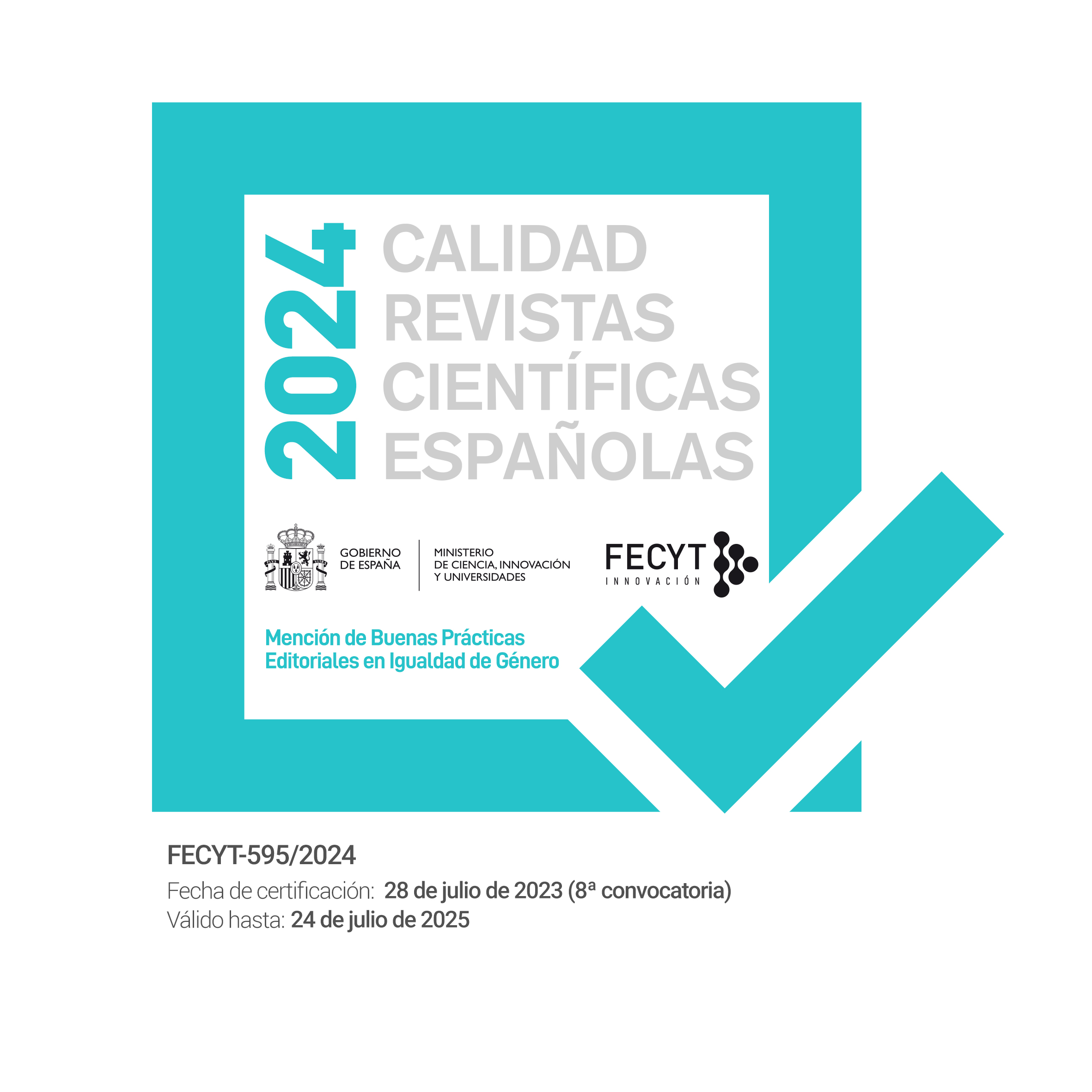Group motivational interviewing as a tool for implementing quality management systems in organizations
DOI:
https://doi.org/10.15257/ehquidad.2025.0017Keywords:
Quality management, Social Work, Organisational Culture, Processes, Motivational interviewingAbstract
Quality management in non-profit organisations dedicated to social action is an essential issue. Certifying quality management processes is complex and resistance to change in organisations does not make it easy. This article explores motivational interviewing (MI) as a tool in the implementation of quality management systems (QMS) in Cystic Fibrosis Associations in Spain (CFE). A qualitative approach methodology has been chosen using group interviews, participant observation, focus group discussions, and documentary and bibliographic analysis in 5 associations over a period of one year located in different autonomous communities. As a result, it has been seen that the use of MS seems to be useful for promoting change and achieving the commitment and motivation of the teams of the organisations for quality management. The Social Worker as an essential piece in accompanying these processes of change and improvement of non-profit organisations is evident, as well as its promoting role is essential to confirm the importance of quality management in a participatory way from the beginning, enabling a diagnosis and a roadmap to be followed by all the agents involved.
Downloads
References
Asamblea Médico Mundial (2013). Declaración de Helsinki. Principio ético para las investigaciones médicas en seres humanos. https://www.wma.net/es/policies-post/declaracion-de-helsinki-de-la-amm-principios-eticos-para-las-investigaciones-medicas-en-seres-humanos/
ASQ (2024). Quality Glosary. https://asq.org/quality-resources/quality-glossary
Barbero, I. (2008). Sistemas de gestión de la calidad en el tercer sector de la acción social: Situación actual y propuestas de futuro. Zerbitzuan, 43, 7-18. https://doi.org/10.5569/1134-7147
Barranco, C. (2011). Buenas prácticas de calidad y trabajo social. Alternativas. Cuadernos de Trabajo Social, 18, 57-74. https://doi.org/10.14198/ALTERN2011.18.03
Barriga, L. (2000). Calidad en los Servicios Sociales: reflexiones sobre la Calidez. Servicios Sociales y Política Social,49, 31-62.
De la Red, N. y González, G. (2012). La investigación en el proceso de mejora de la intervención en trabajo social. Servicios Sociales y Política Social, 100, 113-125
DeShaw, K. J., Ellingson, L. D., Lansing, J. E., Perez, M. L., Wolff, M., & Welk, G. J. (2022). Process and impact evaluation of a practicum in motivational interviewing. International Journal of Health Promotion and Education, 62 (3), 171-181. https://doi.org/10.1080/14635240.2022.2042356
Ellis, A. E., Martino, S., Simiola, V., Bellamy, C., O’Connell, M., & Cook, J. M. (2023). Training Male Sexual Abuse Survivors as Peer Leaders to Deliver Motivational Interviewing and Trauma-Informed Affirmative Care. Journal of Child Sexual Abuse, 32(4), 494–512. https://doi.org/10.1080/10538712.2023.2203691
Esteban, L. y Botija, M. (2020). Gestión de calidad en asociaciones de pacientes. Diagnóstico en la Federación Española de Fibrosis Quística. Trabajo Social Global-Global Social Work, 10 (1), 201-223.
García, I. y Morales, V. (2014). Eficacia de la entrevista motivacional para promover la adherencia terapéutica en pacientes con Diabetes Mellitus tipo 2. Universitas Psychologica, 14(2), 511-522. https://www.redalyc.org/articulo.oa?id=64747729009.
Hohman, M., & Lee, A. (2024). The use of motivational interviewing in field instruction. Social Work Education, 43(2), 249–260. https://doi.org/10.1080/02615479.2022.2082401
Iachini, A. L., Lee, J., DiNovo, R., Lutz, A., & Frey, A. J. (2018). Integrating Motivational Interviewing Into Social Work Education: A Practical Example. Journal of Social Work Education, 54(1), 103–S112. https://doi.org/10.1080/10437797.2018.1434433
Laviano, L. (2019). Entrevista motivacional y gestión del cambio organizacional: aportes para una articulación necesaria. Trabajo final de grado. Montevideo: Universidad de la Repu?blica. Uruguay. Facultad de Psicologi?a. https://hdl.handle.net/20.500.12008/22753.
Lewin, K. (1951). Theory. Social Science. New York. Harper and Row.
Lizarraga, S.(2009). Entrevista motivacional. Anales, 24 (2), 43-53.
Melao, N. F., Amorin, M., Marimon, F. and Alegre, I. (2018). Quality management systems in European social service organizations: A survey of EQUASS Assurance pioneer adopters. International Journal of Quality & Reliability Management, 35 (2). 354-372. https://doi.org/10.1108/IJQRM-10-2016-0187.
Miller, W.R., Rollnick, S. (2002). Motivational Interviewing: preparing people for change. Guilford press. New York.
Oliveira Júnior, G. C., Sigahi, T. F. A. C., Rampasso, I. S., Zanon, L. G., Pinto, J. de S., Leal Filho, W., Anholon, R. (2024). Integrated management systems: Barrier assessment through Grey Incidence Analysis and contributions to quality management. Quality Management Journal, 31(2), 102–116. https://doi.org/10.1080/10686967.2024.2317474
Ortiz, L. (2018). Entrevista Motivacional. Taller: Diálogos entre la Entrevista Motivacional y la Gestión del Cambio en las Organizaciones. Facultad de Psicología, UdelaR. Montevideo:
Plataforma ONG de Acción Social (2020). El Tercer Sector en España. Nuevos horizontes para un nuevo contexto sociopolítico. https://www.plataformaong.org/ARCHIVO/documentos/biblioteca/1583424466_informe-poas-completo.pdf
Prochaska, J.O. y Prochaska, J.M. (1993). Modelo transteórico de cambio de conductas adictivas. En Casas, M. y Gossop M. (Eds.) Recaída y prevención de recaídas. Tratamientos psicológicos en drogodependencias (191-222). Barcelona. Ediciones de Neurociencias. Citrán. FISP.
Ramanathan, N. (2020). Embedding sustainability concerns into quality assurance. Total Quality Management & Business Excellence, 36 (3-4), 249- 263. https://doi.org/10.1080/14783363.2020.1858712
Sánchez Flores, F. A. (2019). Fundamentos epistémicos de la investigación cualitativa y cuantitativa: Consensos y disensos. Revista digital de investigación en docencia universitaria, 13(1), 102-122.
Smeds, M., Martin, J., Elg, M., & Gremyr, I. (2023). Why won’t you leave the process alone? Exploring emotional, motivational and cognitive mechanisms triggering tampering. Total Quality Management & Business Excellence, 34(5–6), 791–805.
https://doi.org/10.1080/14783363.2022.2112514.
Tadesse Bogale, A. & Debela, K. L. (2024) Organizational culture: a systematic review. Cogent Business & Management, 11(1), 1-23. https://doi.org/10.1080/23311975.2024.2340129
Wilding, S., O’Connor, D. B., Ferguson, E., Wetherall, K.,Cleare, S., O’Carroll, R. E., Robb, K. A., & O’Connor, R. (2022). Information seeking, mental health and loneliness: Longitudinal analyses of adults in the UK COVID-19 mental health and wellbeing study, Psyquiatry Research, 317, 114876. https://doi.org/10.1016/j.psychres.2022.114876
Wood, A. R., Ross,L. & Wood, R. J. (2023). Motivational Interviewing and Chronic Care Management Using the Transtheoretical Model of Change. Health & Social Work, 48 (4), 271–276, https://doi.org/10.1093/hsw/hlad020












